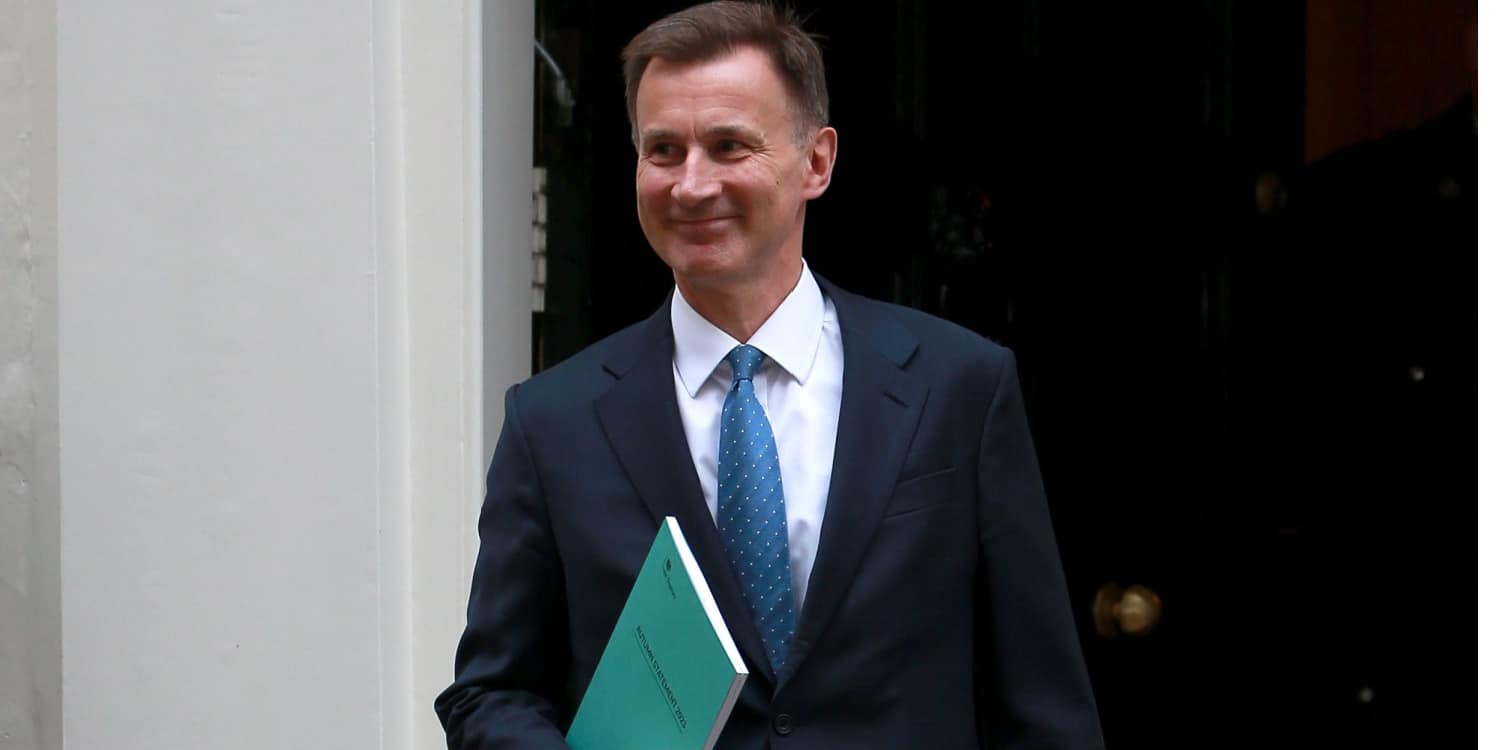On 22 November, Chancellor Jeremy Hunt delivered the Autumn Statement 2023, revealing 110 tax and spending measures designed to grow the UK economy, including changes to National Insurance.
Below is a round-up of 15 key measures that may affect you as a business owner or self-employed worker.
1. Cuts to National Insurance
The main rate of employee Class 1 National Insurance contributions (NIC) will reduce from 12% to 10% on wages between the Primary Threshold (currently £1,048 per month) and the Upper Earnings Limit (currently £4,189 per month).
This change will come into effect on 6 January 2024, which is three months before the start of the new tax year, when such changes are normally implemented.
From 6 April 2024, the main rate of Class 4 National Insurance will be cut by 1 percentage point from 9% to 8%. This applies to self-employed profits between the Lower Profits Limit (currently £12,570 per year) and the Upper Profits Limit (currently £50,270 per year).
According to the Chancellor, the reduction to Class 4 NICs will benefit around 2 million individuals, saving the average self-employed worker £350 in the new tax year.
From 6 April 2024, Class 2 National Insurance for the self-employed will be abolished. However, they will still receive access to contribution-based benefits, including the State Pension. At the present time, self-employed workers with profits above £12,570 are required to pay Class 2 NIC at a flat rate of £3.45 per week.
Voluntary Class 2 NIC
People who pay Class 2 National Insurance contributions voluntarily to get access to contribution-based benefits, including the State Pension, will still have the option to do so.
Prior to the changes announced in the Autumn Statement, the main rate of Class 2 NIC was due to rise to £3.70 per week from April 2024. However, for those who pay voluntarily, the government is maintaining the current rate of £3.45 per week for the 2024/25 tax year.
2. Business rates and relief frozen
From 1 April 2024, the following business rates measures will take effect:
- the small business multiplier will be frozen at 49.9p
- the standard multiplier will increase from 51.2p to 54.6p
- the existing Retail, Hospitality, and Leisure (RHL) scheme will continue for 2024/25, providing eligible properties with 75% relief on their rates bills, up to a cap of £110,000 per business
This business rates support package set out in the Autumn Statement will protect approximately 90% of ratepayers in England for a fourth consecutive year.
3. National Minimum Wage and Living Wage increases
From April 2024, the National Living Wage (NLW) will increase to £11.44 and extend to workers aged 21 and 22. This represents an increase of £1.02 per hour, or 9.8%, from the current rate of £10.42 per hour.
National Minimum Wage rates for those aged 20 and below, as well as the Apprentice Rate, will also increase.
In cash terms, these are the largest-ever increases to minimum wage rates in the UK, and it is the first time that they have increased by more than £1.
If you employ staff in your businesses, you must update your payroll to ensure that your workers receive at least the NLW or NMW from 1 April 2024.
4. Full expensing made permanent
The full expensing regime, which was first introduced at the Spring Budget 2023, will now become permanent (rather than ceasing in 2026, as initially planned). This means that companies can permanently claim:
- 100% first-year capital allowances (tax relief) on qualifying new plant and machinery in the year of investment. Essentially, they can deduct the entire cost from their taxable profits and reduce their Corporation Tax liability
- 50% first-year allowance for expenditure on new special-rate and long-life capital assets
The Annual Investment Allowance (AIA), which provides 100% first-year relief for plant and machinery investments up to £1 million, remains available to all businesses, including companies, sole traders, and most partnerships.
This news will be particularly welcomed by companies that are considering significant capital investments, and it may also encourage others to invest in new business equipment sooner than planned.
5. Simplified R&D tax relief
With the aim of increasing productivity and promoting growth, the government has announced a ‘new simplified R&D tax relief’, which merges the research and development expenditure credit (RDEC) scheme and the SME scheme for accounting periods commencing on or after 1 April 2024.
Under the merged scheme, the notional rate of Corporation Tax applied to loss-making companies will be reduced from 25% (the main rate) to 19% (the small profits rate).
Additionally, the intensity threshold will be reduced from 40% to 30% of total expenditure, with a one-year grace period for those falling below the threshold. This will allow more R&D intensive SMEs to claim a higher rate of tax relief.
6. Late payment reforms
From April 2024, any company that bids for large government contracts must demonstrate that they pay their own invoices within a period of 55 days. This will eventually reduce to 30 days to align with the prompt payment requirements set out in the Procurement Act, which was introduced earlier in the year.
7. Changes to cash basis accounting
Cash basis accounting will be the default method for self-employed individuals and partnerships from 6 April 2024, with an opt-out for businesses who wish to use the accruals basis instead.
The £150,000 turnover threshold for using the cash basis will be removed, along with the £500 limit on interest deductions. Existing restrictions on loss relief will also be removed.
For more information on what this means for your business, you can read GOV.UK’s policy paper on expanding the cash basis.
8. Simplifying Making Tax Digital
Following a review, the government revealed in the Autumn Statement its intention to make changes to the Making Tax Digital for Income Tax Self Assessment (MTD for ITSA) system, including:
- simplifying the requirements for all taxpayers who provide quarterly updates, and for those with more complex affairs, e.g. landlords with jointly-owned property
- removing the requirement to provide an End of Period Statement
- exemption from MTD for certain taxpayers, including those who do not have a National Insurance number
- enabling taxpayers who use MTD to be represented by more than one tax agent
These design changes will take effect in April 2026 when MTD for ITSA is introduced, simplifying and improving the system for self-employed taxpayers and their representatives.
9. Alcohol Duty frozen
Alcohol Duty, which is payable on alcohol products at the point they are released for consumption onto the UK market, will be temporarily frozen at the current rates until 1 August 2024.
10. Off-payroll working (IR35)
To account for Income Tax and NIC already paid by a worker and their intermediary, HMRC will reduce the PAYE liability of a deemed employer under the off-payroll working rules. This change will take effect from the start of the new tax year on 6 April 2024.
11. Expanding VAT relief for energy-saving materials
From 1 February 2024, VAT relief for energy-saving materials will be extended to specified additional technologies (e.g. water-source heat pumps) and buildings that are used solely for a relevant charitable purpose.
12. Plastic Packaging Tax (PPT) rate increase
The rate of plastic packaging tax will increase from £210.82/tonne to £217.85/tonne from 1 April 2024. This change will affect:
- UK manufacturers of plastic packaging
- importers of plastic packaging
- business customers of manufacturers and importers of plastic packaging
- consumers who purchase plastic packaging or goods in plastic packaging in the UK
Businesses that manufacture or import less than 10 tonnes of plastic packaging a year will be exempt.
13. Construction Industry Scheme (CIS) reform
From 6 April, changes to the Construction Industry Scheme will enable HMRC to immediately remove gross payment status from those with VAT compliance failures. Subject to technical consultation, other aspects of the scheme will be simplified.
14. SEIS & EIS ‘sunset clause’ extended
The existing sunset clauses under the Enterprise Investment Scheme (EIS) and Venture Capital Trust (VCT) scheme will be extended to 6 April 2035, providing much-needed reassurance to startups and investors across the UK.
15. Self Assessment tax returns for higher earners
Currently, if you receive more than £100,000 a year through PAYE, you are required to file a Self Assessment tax return with HMRC. From April 2024, those with income that is fully taxed through PAYE will no longer have to file a tax return, regardless of how much they earn.
Thanks for reading
The full Autumn Statement 2023 and the latest economic forecast from the Office for Budget Responsibility (OBR) are available to view online. For more business news and advice, please visit the 1st Formations Blog.












